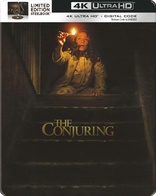Quote:
Originally Posted by bobbyh64

Does a regular 1080p Blu-ray look worse on a 4K TV than on a 1080p TV? I thought maybe it would be similar to playing a non-anamorphic widescreen DVD on a 16:9 TV and zooming in but I have no idea if this correct.
|
In theory, it's not anywhere near as bad.
For one, non-anamorphic DVDs are very low-res. Speaking in NTSC terms, scope films are ~720x268, so in order to fill a full 1920x1080 screen, you have to scale each pixel 10-11 times. There's just not anywhere near enough detail for it look very good on a HD TV. Even with anamorphic DVDs, the picture has to be stretched horizontally, then upscaled, and 480p's still pretty low-res compared to 1080p.
With HD content on 4K screens, you're only scaling each pixel four times, and there's no worries about aspect ratios or any of that.
And, leaving the numbers behind, there's just far less discernible difference between the jump from SD to HD and the jump from HD to 4K. HDR's the big sell here, 4K on its own probably isn't worth the upgrade.
Quote:
Originally Posted by bobbyh64

I remember watching DVDs on my old 4:3 TV and some of them looked better than on a 16:9 TV. Not exactly sure why. Maybe it's because old TVs handle interlaced content better. The colors weren't as vibrant and I'd see ghosting on the 16:9 TV.
Anyway, is there a technical reason why 1080p Blu-rays look better on a 4K TV than a 1080p TV? Are the pixels on the disc being duplicated or scaled larger?
|
CRTs could hide some of the flaws with low-res content. They're no where near as sharp as modern LCDs, the screens are much smaller than today's digital displays, and they kind of provide a natural anti-aliasing/smoothing effect to low-res video. Not to mention CRTs were designed to display 15 kHz/480i content, so there's no scaling going on.
Colours shouldn't look "more vibrant" though. Contrast and black levels might be a bit better if you're still using a mid-late '00s LCD but colour settings might've just been cranked to the top on the CRT.































 Hybrid Mode
Hybrid Mode
